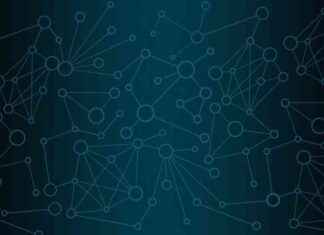From January, German companies will have to monitor their supply chains more closely: the Supply Chain Due Diligence Act will then apply. In May, the EU will follow suit with significantly stricter rules. Germany will then probably have to tighten up again.
Almost all companies purchase primary products. These do not always come from ethically impeccable sources, but are obtained through child labor, ecological overexploitation or the circumvention of sanctions. To prevent this, the EU and the USA have been demanding stricter standards for years. There are already various supply chain laws – be it the “Forced Labor Ban” in the USA or the “EU and US anti-greenwashing legislation”.
The debate should really pick up speed this year. Because both Germany and the EU are imposing new laws that will force many companies to act. What it is about, what the law says and what companies must do now:
Which laws come when?
Specifically, it is about the German Supply Chain Due Diligence Act (LkSG) and the European Supply Chain Act. For the latter, there is only one draft with the unwieldy name “Corporate Sustainability Due Diligence Directive” (CSDDD). Both will be implemented step by step.
The new German supply chain law will apply to companies with 3,000 or more employees from January 1, 2023. The European draft is expected to be adopted in May 2023. The member states then have two years to convert the directive into their own national law. Since the rules are expected to be much stricter than the German law, Germany will probably have to tighten up.
What does the German Supply Chain Due Diligence Act say?
Larger companies based in Germany must comply with certain due diligence requirements from January 1st. This includes, for example:
From 2024, the law will apply to more than 1,000 domestic employees. The rules are monitored by the newly created “Borna” – a branch of the Federal Office for Economic Affairs and External Control. If companies violate these rules, fines can be imposed. These can amount to up to EUR 8 million or up to 2 percent of global annual sales. In addition, companies can be excluded from public tenders.
What is the difference between the German and European regulations?
What do the rules mean for small and medium-sized enterprises (SMEs)?
Not much at first. But: SMEs are indirectly affected if they are suppliers to one of the regulated companies. The rules are likely to create burdens for SMEs, for example through additional bureaucracy. Various measures are planned to relieve companies here. If necessary, states can, for example, provide companies with financial support for the costs they incur as a result of the new requirements.
How does the implementation work in practice?
Companies that fall under the regulation can, for example, operate so-called supply chain mapping. In other words, they should draw an organizational chart for their suppliers, based on their own data and that of the company. There are several software providers for this, such as Trustrace or Sourcemap.
Experts consider this to be time-consuming, also because the integration process can take between 90 days and a year. But in the end it should bring benefits. On the one hand, the reporting obligations are standardized and up-to-date; on the other hand, there is potential for savings, says Leonardo Bonanni, CEO of Sourcemap. “Our customers have an average of 30,000 suppliers that they didn’t even know about. There are the craziest constellations and double structures. Many can be broken up and eliminated.”
Since many reports are not due for a year at the earliest, there is still enough time to enter the software into the company’s systems, according to Bonanni. “Over time, the rules will become stricter anyway. And as a closed SME, you are then increasingly in competition with companies that offer transparency. In this respect, transparency becomes a competitive advantage.”
This article first appeared on Capital.de.







